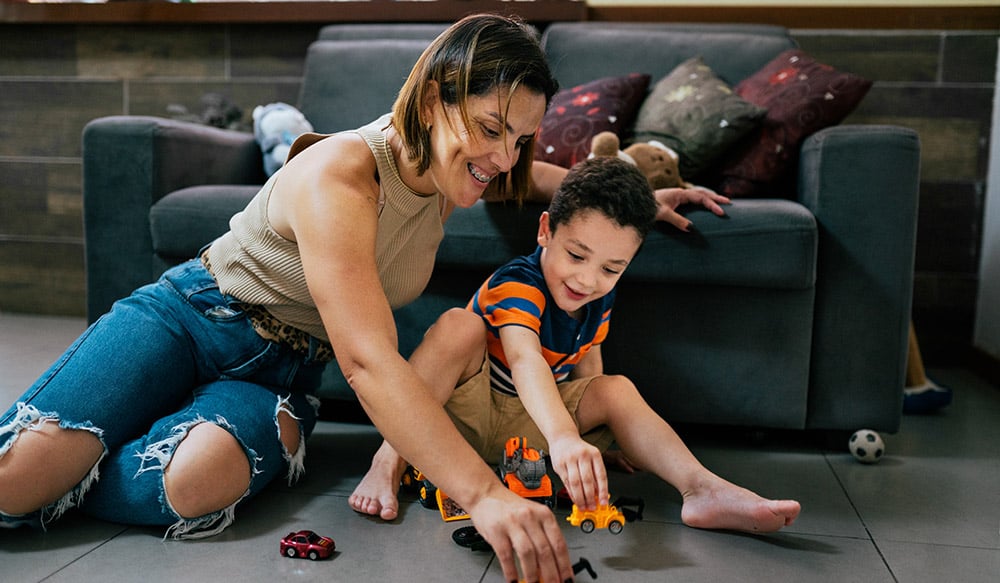Get updates
Have a parenting hack to share? Or a topic you'd like to see?
Let them play: Why play is the secret ingredient to your child's wellbeing

As parents, we often prioritize our children’s health, education and safety—but what if one of the most powerful tools for their development is something as simple as play?
Play isn’t just fun and games. It’s foundational to a child’s physical, emotional and social wellbeing. Here’s what you should know about its importance and how to incorporate more play into every day.
Prefer to listen? Check out our podcast on this topic here, or wherever you listen to podcasts!
Play build brains and bodies
Play is the “work of childhood.” Through activities like running, jumping and throwing, children develop essential motor skills that lay the groundwork for lifelong physical activity. Whether it’s a game of tag or hopping over sidewalk cracks, these moments are more than just movement—they’re building blocks for health.
Pro tip: Turn everyday moments into mini adventures. Race to the mailbox, jump over puddles, or play “Keepy Uppy” with a balloon. It’s all play—and it all counts.
Play nurtures emotional strength
Play is a safe outlet for kids to express emotions, build confidence and learn resilience. Whether it’s imaginative play, coloring outside the lines or role-playing real-life scenarios, children process their world through play.
Try this: Let your child lead. Whether they want to build a fort or pretend to be a superhero, following their lead shows them their ideas matter—and builds emotional security.
Play strengthens bonds
Shared play time is a powerful way to build trust and connection. It’s not just about fun—it’s about creating joyful memories and repairing emotional rifts.
Even 5 minutes helps: You don’t need hours. Just 5–10 minutes of undistracted play can reset your relationship after a tough day and remind your child they’re loved and seen.
Not “playful,” no problem.
Think you’re not the “playful” type? That’s OK! You don’t have to be a clown or a coach—just be present. Let your child take the lead and look for ways to make everyday routines more playful. Even chores can become games.
Example: Turn laundry folding into a sock-matching race. Or make brushing teeth a silly song-and-dance routine.
Make play part of your family’s routine
Busy schedule? Keep a “play bag” in your car with a ball, frisbee or bubbles. You never know when a few free minutes might turn into a spontaneous play session.
Remember: Play doesn’t have to be structured or scheduled. It just needs to be fun—and shared.
Ask, don’t assume
The experts agree, always ask your child what they want to do. Whether they’re 2 or 18, giving them a voice in how they play fosters autonomy, joy and connection.
